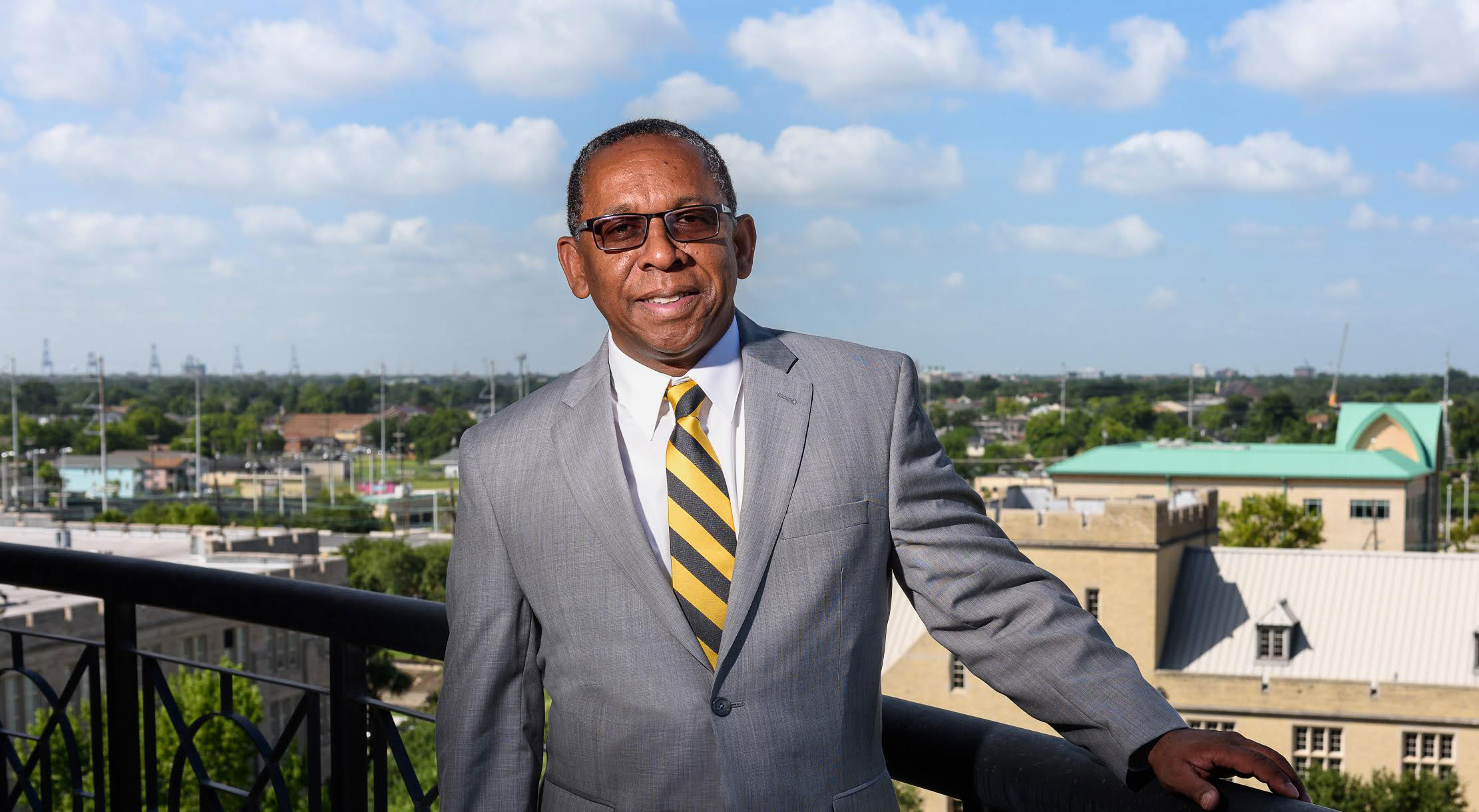
Reynold Verret, PhD ’82, grew up in Haiti at a time of political unrest. In 1963, when he was eight, he heard sirens blaring and saw dead bodies in the street on the day his mother, a nurse, was arrested by soldiers seeking the whereabouts of her physician husband. A stranger hid Verret and his siblings for a week until their mother was released. Four months later, his mother obtained visas to emigrate to the United States with her four children. “It was a devastating time,” he says.
Those dramatic events helped shape the man who became the sixth president of Xavier University of Louisiana four years ago. Verret leads an institution with a unique legacy: of the 107 historically black colleges and universities (HBCUs) and 262 Catholic colleges and universities in the US, Xavier is the nation’s only Catholic HBCU.
An immunologist and experienced educator who can often be spotted cycling around New Orleans, Verret has traveled many years and miles from his formative early experiences in Haiti. After attending a Jesuit high school in Brooklyn, he earned a BA from Columbia University and a PhD from MIT, both in biochemistry. He has previously served as provost of Savannah State University and as dean of arts and sciences at the University of Sciences in Philadelphia.
As Xavier’s president, Verret envisions a future for the university in which it is recognized worldwide. He is spearheading initiatives to build the school’s enrollment, enhance the diversity of its academic programs, and create cooperative relationships not only with nearby institutions but with international partners. And he is committed to Xavier’s mission of promoting a more just and humane society by identifying and nurturing the individual gifts of its students, preparing them for roles of leadership and service.
“Service is the only meaning,” Verret says. “If I’m a doctor, the only meaning is in healing others; if I’m a lawyer, the only meaning is in doing justice. Whatever subject a degree is in, it will not have meaning until we meet those we come to serve.”
Verret is not only an authority in STEM education but a champion for the liberal arts and humanities. “I’m a scientist; it’s in my bones. But a lot more can be done when we bring the sciences and the humanities into the conversation,” he says. Likewise, when weighing the ethics of technology, “the answer is not technical,” he says. “It comes from the experience of being human.”
Keep Reading
Most Popular
Large language models can do jaw-dropping things. But nobody knows exactly why.
And that's a problem. Figuring it out is one of the biggest scientific puzzles of our time and a crucial step towards controlling more powerful future models.
The problem with plug-in hybrids? Their drivers.
Plug-in hybrids are often sold as a transition to EVs, but new data from Europe shows we’re still underestimating the emissions they produce.
Google DeepMind’s new generative model makes Super Mario–like games from scratch
Genie learns how to control games by watching hours and hours of video. It could help train next-gen robots too.
How scientists traced a mysterious covid case back to six toilets
When wastewater surveillance turns into a hunt for a single infected individual, the ethics get tricky.
Stay connected
Get the latest updates from
MIT Technology Review
Discover special offers, top stories, upcoming events, and more.